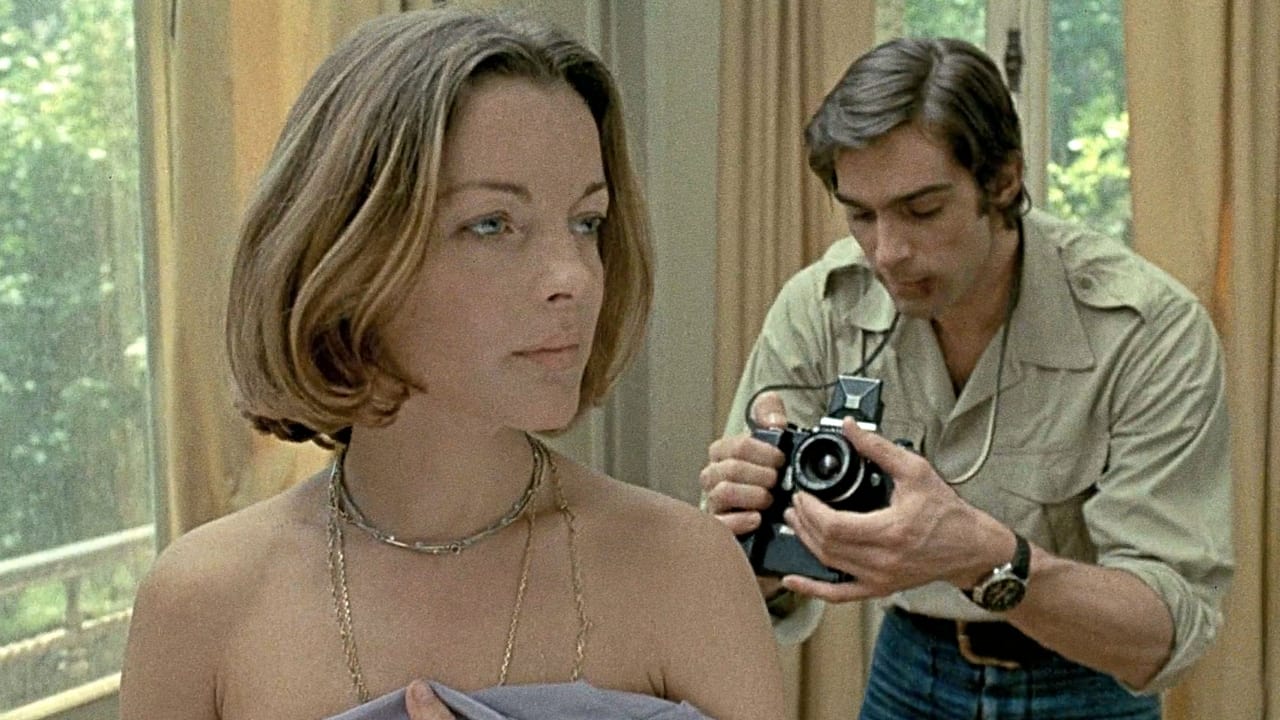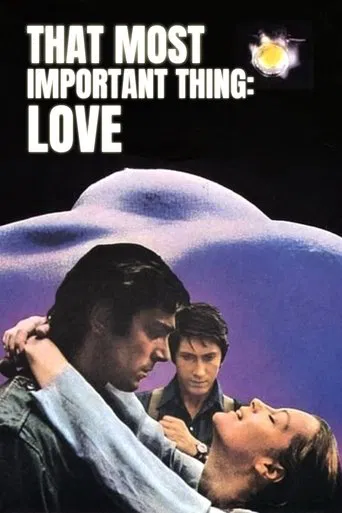Supelice
Dreadfully Boring
Staci Frederick
Blistering performances.
Francene Odetta
It's simply great fun, a winsome film and an occasionally over-the-top luxury fantasy that never flags.
lasttimeisaw
Hardly anything witty about love has dawned on Zulawski's third feature, an almost exclusively chamber drama, where a burgeoning attraction between a pornography photographer Servais Mont (Testi) and a second-rate actress Nadine Chevalier (Schneider), has barely taken off from the platonic struggle, because Nadine is married to Jacques (Dutronc), to whom she bears a tangible fusion of gratitude, responsibility and affection, which complicates their situation into a torrid emotional abyss so as to testify that love is indeed the most inscrutable, unpredictable, yet the most important thing.Crammed in the high-ceiling, antique-looking Parisian apartments and loci like theatre, bar and hospital, its mise-en-scène strains to stay claustrophobic, fluid and quivering, signals the characters' shaky states, but, Zulawski and the screenwriter Christopher Frank fail to let their emotions run the full gamut to reach out its dazzled viewers, a stately but shallowly anaemic Testi cannot portray a role, whose inner depth is apparently out of his league, fumbles and routinely daydreams from scene to scene, his fervent gaze can not justify Servais' actions, his thoughts, and the limp dialogue doesn't help either.Ms. Schneider, won Best Actress in the first-ever César Awards, is palpably more tapped into her role, sending off her raw charisma into her inwardly paralysed psyche, she tries to be frank with her own feelings, desire, dignity and pride at her own peril, but there are too many smoke and mirrors around to indulgently mystify an uncompounded, and fragmented story-line, the only thing to ameliorate the faint exasperation is when the pure dramatic sequences take the stage: Kinski's spit-fire flare-up is a mood-enforcer, Dutronc stands out in his chummy whims and delightfully erratic behavioural conundrum, a peculiar man who withdraws into a reprieve from, in an obvious tenor, a husband's functionality (abruptly falls into slumber so that his wife can only hopelessly play with herself to slake her desire), but also hatches up something seemingly unspeakable and inexplicable with Servais through an undertone of self-abandonment and total capitulation, in a muscle-versus-quirk contest over the same woman.Zulawski's highbrow ambition to extract something refine and sophisticated out of the triangular deadlock doesn't consummately do the trick, in the end, Servais has to pay his debt with his blood and internal bleeding, from a father figure Mazelli (Dauphin), in his case, love IS the most important thing, if he can endure all the pain both physically and mentally, to demonstrate his unconditional devotion.Georges Delerue's score is ever so conspicuous whenever a close-up is zoomed in between Servais and Nadine, to cloyingly illustrate their passion, otherwise, it remains forbidding and sinister, circles around a pessimistic account of love, in its purest but strangely tepid manifestation.
PoppyTransfusion
I thought that Pasolini's film "Salò o le 120 Diornate di Sodoma" was the best portrait of depravity I would see but this film exceeds "Salo". It is entitled "The Important Thing is to Love" because love is the sole good thing one can do amidst a world of utter ugliness where the sum of a man is "the ugliest things he can do".Żuławski has created a film replete with sadness, melancholy, grief and misery and it is crafted so well that it is dazzling and, at times, beautiful. He is well assisted by his cast of actors, including his three beautiful leads, and the film's composer Georges Delerue, whose signature tune haunts the film as a discordant plaint.The film depicts the relationship of a married couple to a man who becomes infatuated with the wife. They share the world of acting, film and pornography and each is a 'prostitute' in their own way. The husband, Jacques, is suicidally depressed and finds himself outside of life and not willing to enter life and engage. His wife, Nadine, is a broken personality who feels that Jacques saved her and she desires an acting career whilst making money as a porn star. Servais is a loner with a broken father; he has become involved with a porn/sex wheeler dealer, Mazelli, who is a gangster of sorts. All yearn to break free from the world they inhabit and Servais's plan, paying to have Nadine cast as Lady Anne in an adaptation of Shakespeare's "Richard III", seems a possible means of release. Like Richard III, the film's characters are somewhat deformed yet they are less ugly in their deformities than the superficially glamorous world they inhabit. Of course Servais's plan fails. Words attributed to Rimbaud, which are the final words of Servais's late friend who died from liver failure, capture the tormented pains of the characters:"Turmoil originated your poetry/ Immense forces served you/ Your entrails burst, death menaces/ Chosen City!/ Consume your shrieks In the deaf trumpet."The film's themes seem clearer than the characters and their dense opaqueness. It is a series of brief, fast changing scenes that I found jarring, perhaps the intent to underline discord and distress. It is like one long howl. It is powerful and almost perfect.
angry127
This film is a little more complex than the title suggests. Love is only one of the elements of the picture.In fact, I would say most of the movie is spent on producing "art" that you are not proud of. This theme is throughout the movie. You get the impression that it is being bolted into your nerves like a physical trauma bolts in disdain.We also deal with the end of youth and how we cope with it. The film is indeed extremely raw. The scenes are meant to be honest and to the point. We get very little sidestepping when it comes to the point of scenes. Perhaps the actors will discuss things in a roundabout way, but the theme slices through each scene like a scimitar.On the subject of love. This is very important to the movie as well. Even though there are virtually no signs of it til the very end, there is a longing for it. And that is what most good romances are about. Sydney Pollock once said something to the effect of, the interesting part of a Romance Film is the longing for the connection between the characters. You can have a couple of slow motion scenes of them waltzing through the park and feeding each other fruits, but that isn't what drives the story and the film. Perhaps that is why this film is so good.
audrius-darguzis
A very simple, and (thus) extremely powerful film. And, sadly, underrated. It's a mind-opening experience. It doesn't say anything new or different on the subject, its simplicity and consistence shows loud and clear that...love is nothing but pain, but it's the only thing worth fighting (living; feeling pain) for; the only thing that sets you free. When Schneider's personage finds an earlier repulsive photograph dying in his desolated apartment you get to feel that now she cannot not love him... A very sincere, believable, touching film resembling real life and real love. Every actor's work is praise-worth, and worth the film's title. They knew what each of them were talking about. And no wonder Kinski took part in this. (The mood of this film is somehow similar to Last Tango in Paris.) You can almost feel wounded along with these 'people' that are being thrashed by love.

